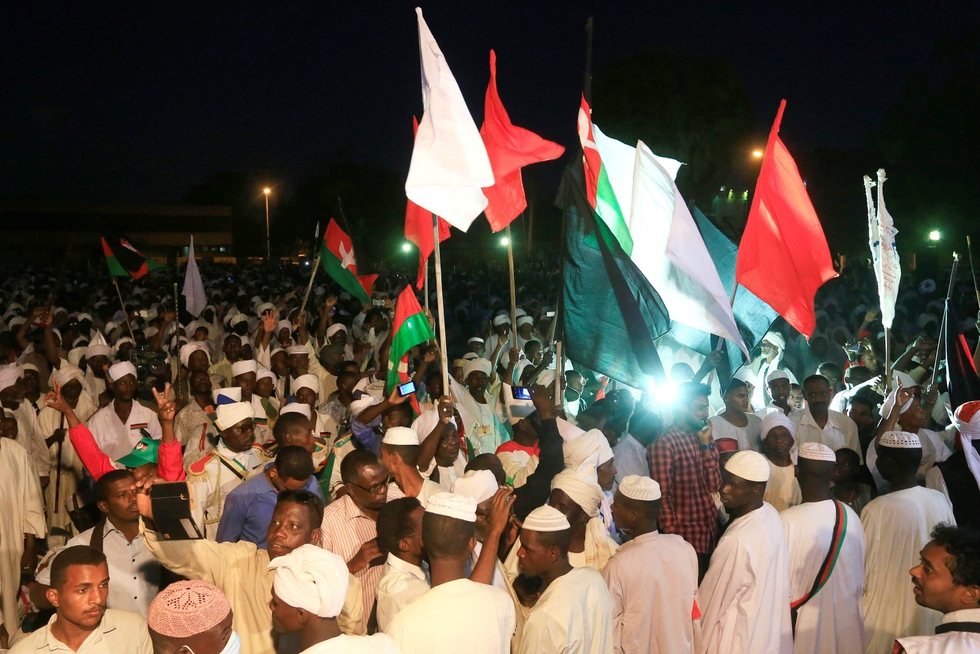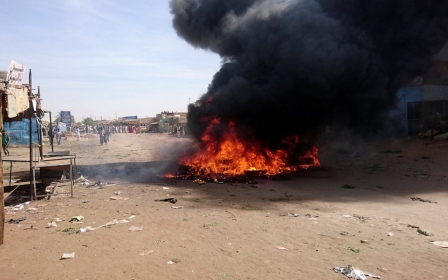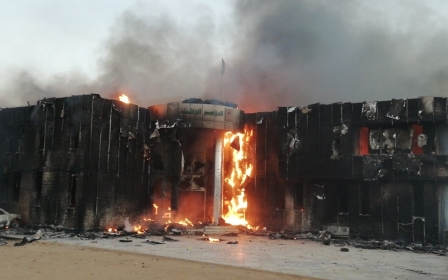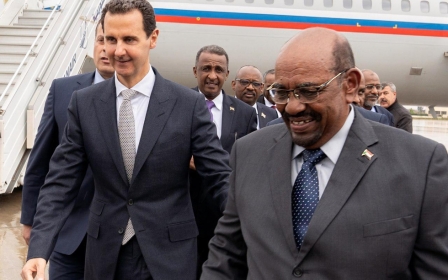Sudanese opposition leaders arrested as protests continue

Sudanese authorities detained 14 leaders of an opposition coalition on Saturday, a spokesman for the grouping said, as anti-government protests driven by an economic crisis continued for a fourth day in several cities.
Farouk Abu Issa, the 85-year-old head of the National Consensus Forces, one of the country's two main opposition groupings, was among those detained after an opposition meeting in the capital Khartoum, said spokesman Sadiq Youssef.
"We demand their immediate release, and their arrest is an attempt by the regime to stop the street movements," Youssef said, adding that Abu Issa was in poor health and had been transferred to hospital after his detention.
Officials could not immediately be reached for comment, the Reuters news agency reported.
The arrests came on the fourth day of demonstrations, fuelled by deteriorating economic conditions in cities across Sudan, in which protesters have voiced anger over corruption and some have called for an end to President Omar al-Bashir's 30-year rule.
At least nine people have been killed in protests this week, according to officials and witnesses, though casualty numbers are hard to confirm.
Qatar's Emir Sheikh Tamim bin Hamad al-Thani called Bashir on Saturday to express his support for Sudan following the protests, Bashir's office said in a statement.
"During the call Sheikh Tamim declared that his country stood with Sudan and was ready to offer all that was necessary to help Sudan overcome this ordeal, stressing his keenness for the stability and security of Sudan," the statement said.
Qatar and its regional rivals have increasingly vied for influence in Sudan and other countries on the Red Sea and Gulf of Aden.
Gulf states have also been an important source of funding for Sudan after it lost three-quarters of its oil output when the south seceded in 2011.
Protests blamed on 'infiltrators'
Also on Saturday, students protesting in the city of al-Rahad set fire to the ruling party's office and other official buildings and briefly closed the main road to the capital Khartoum, about 370km to the northeast, witnesses said.
Police used teargas to disperse demonstrators, according to witnesses.
Protesters also gathered in several eastern neighbourhoods of Khartoum and in the southern city of Madani, witnesses said.
Faisal Hassan Ibrahim, an assistant to Bashir and deputy head of the ruling party, said the protests were "coordinated and organised" and that two of those killed in demonstrations in the city of al-Qadarif were from the armed forces.
"Now the Sudanese armed forces are guarding strategic locations in all Sudanese regions," he said.
Internet services have slowed and activists have accused the government of blocking social media sites to stop protesters communicating. Authorities have blamed the protests on "infiltrators".
Bashir, one of Africa's longest-serving leaders, took power in an Islamist and military-backed coup in 1989. Politicians this month proposed a constitutional amendment to extend term limits that would have required him to step down in 2020.
Sadiq al-Mahdi, leader of the opposition Umma party who returned to Sudan this week from nearly a year in self-imposed exile, backed the protests, saying they would "continue because the people are driven by collapsing services".
New MEE newsletter: Jerusalem Dispatch
Sign up to get the latest insights and analysis on Israel-Palestine, alongside Turkey Unpacked and other MEE newsletters
Middle East Eye delivers independent and unrivalled coverage and analysis of the Middle East, North Africa and beyond. To learn more about republishing this content and the associated fees, please fill out this form. More about MEE can be found here.




